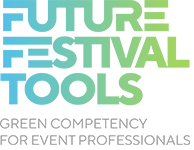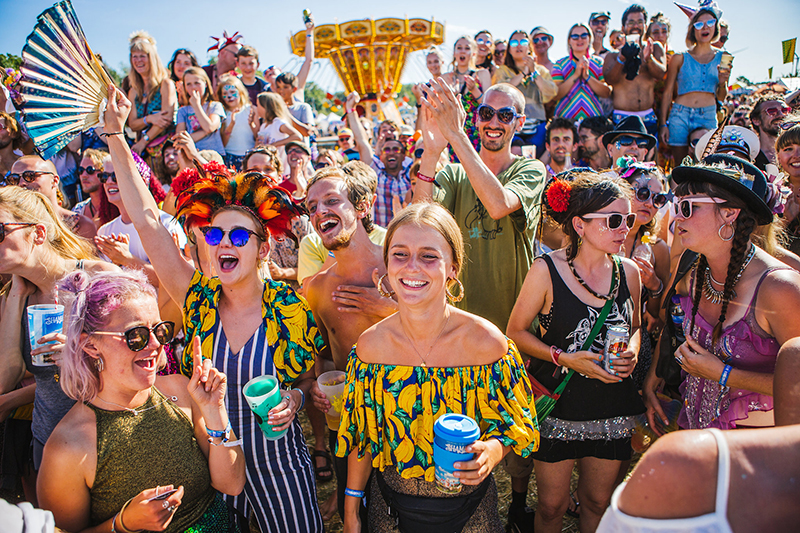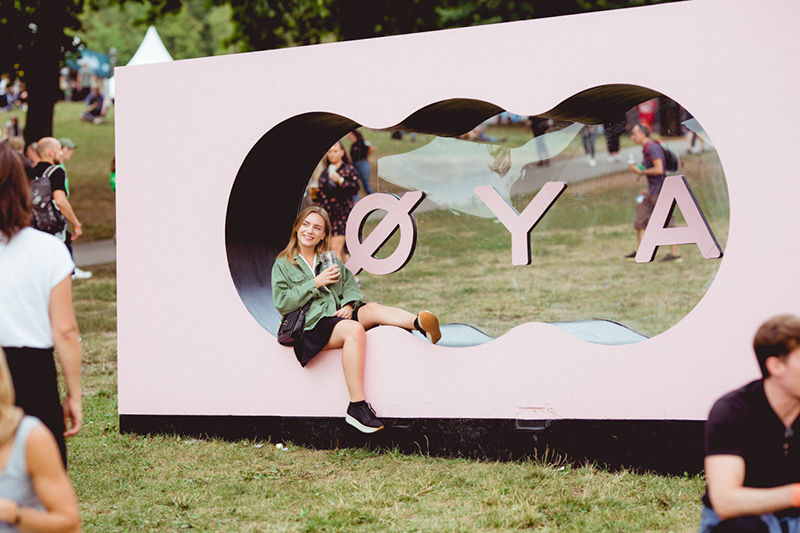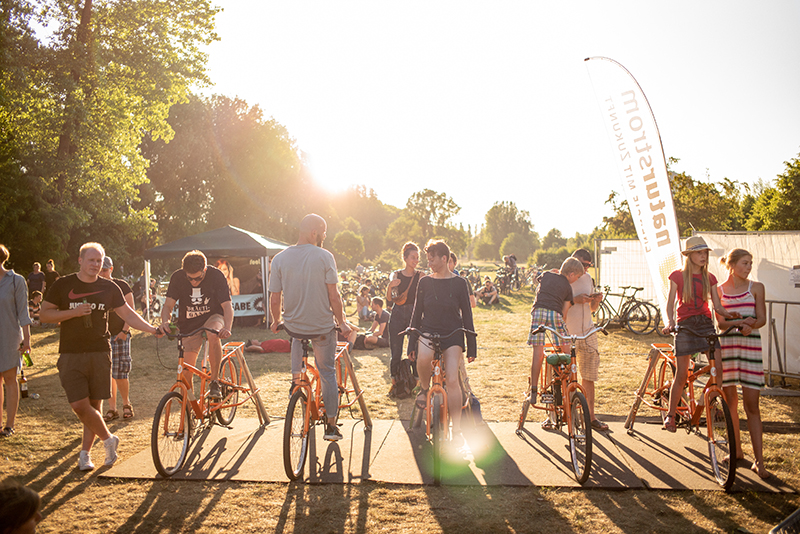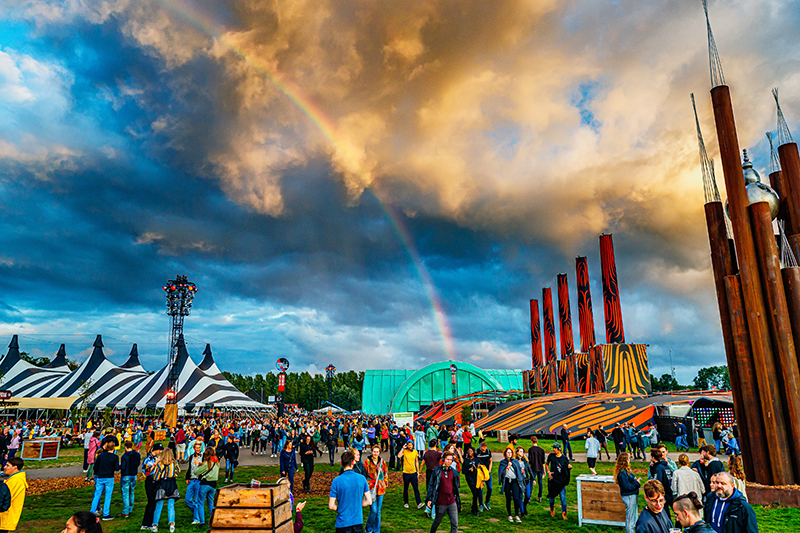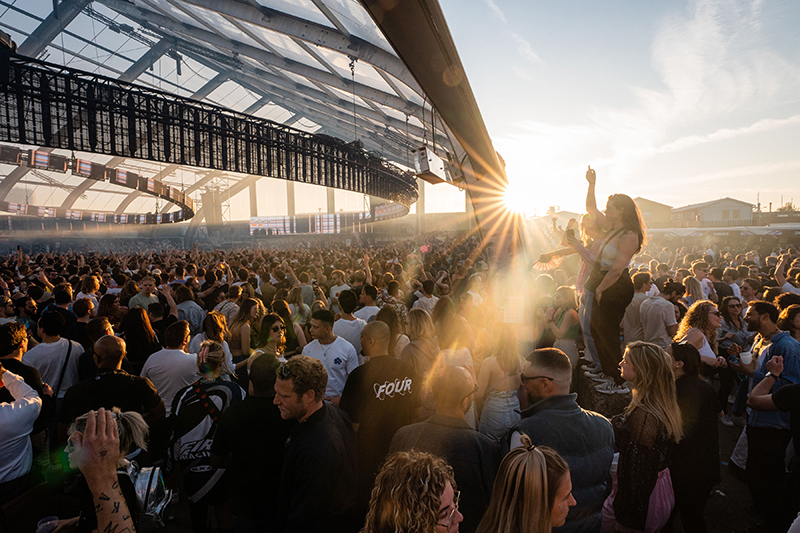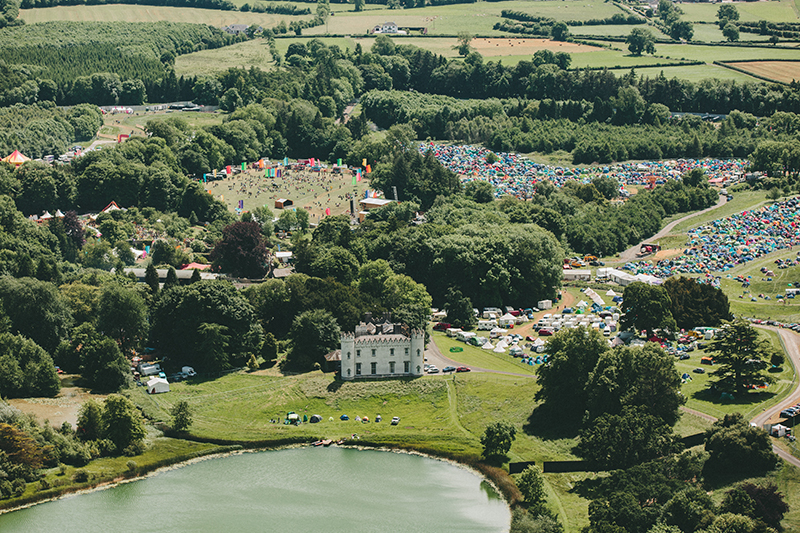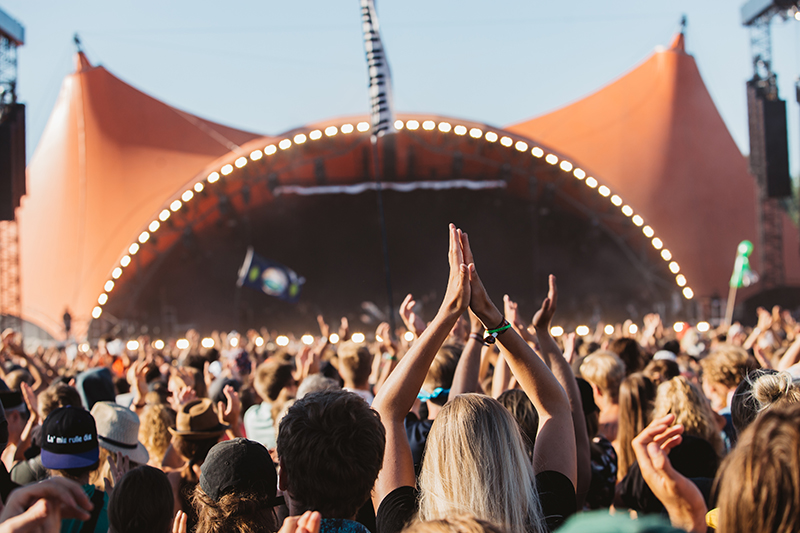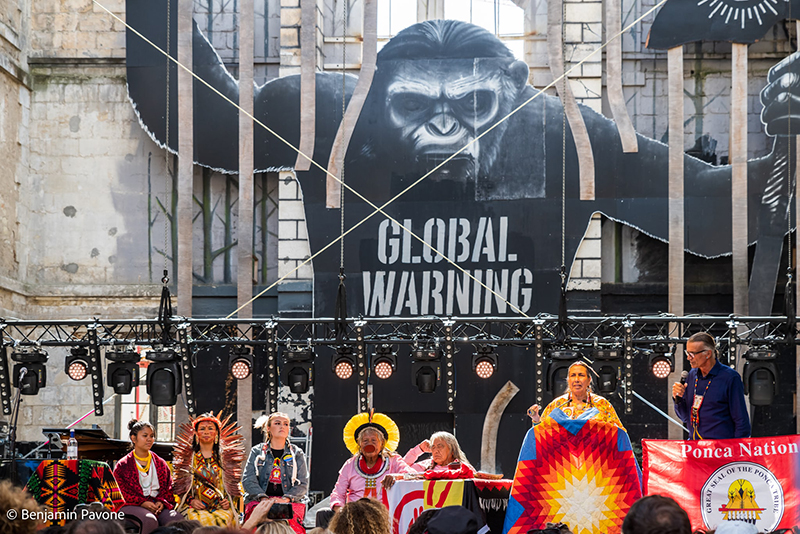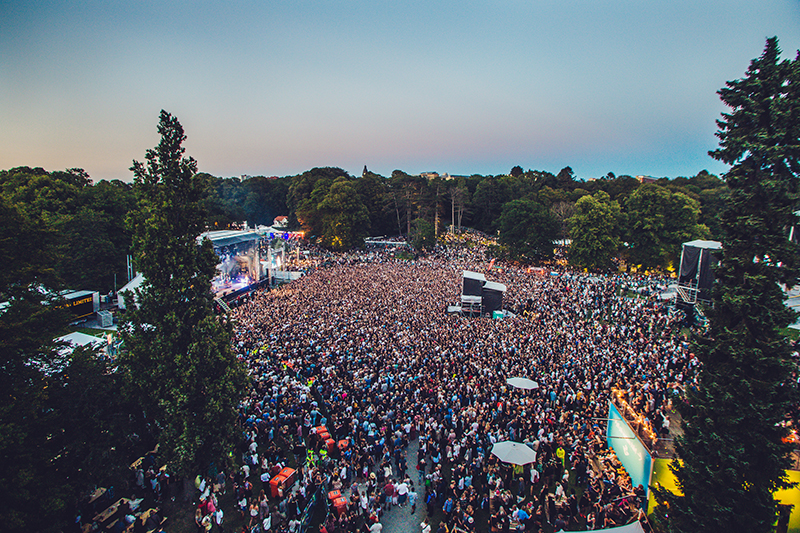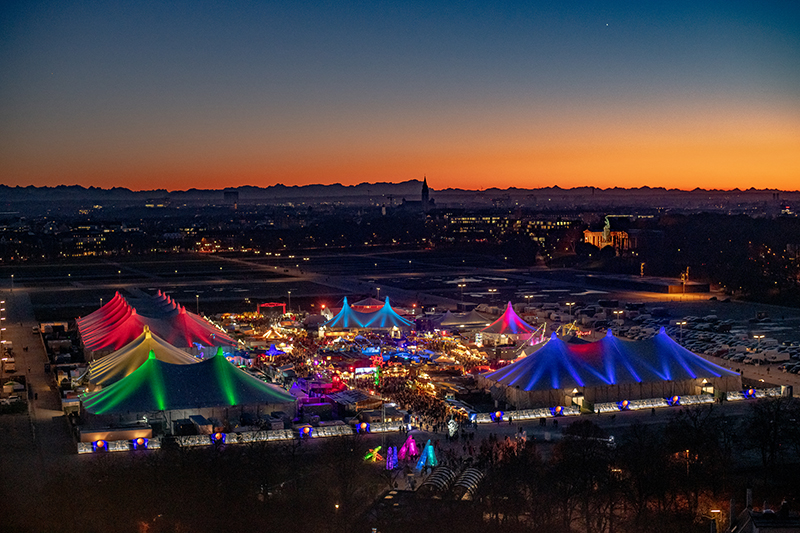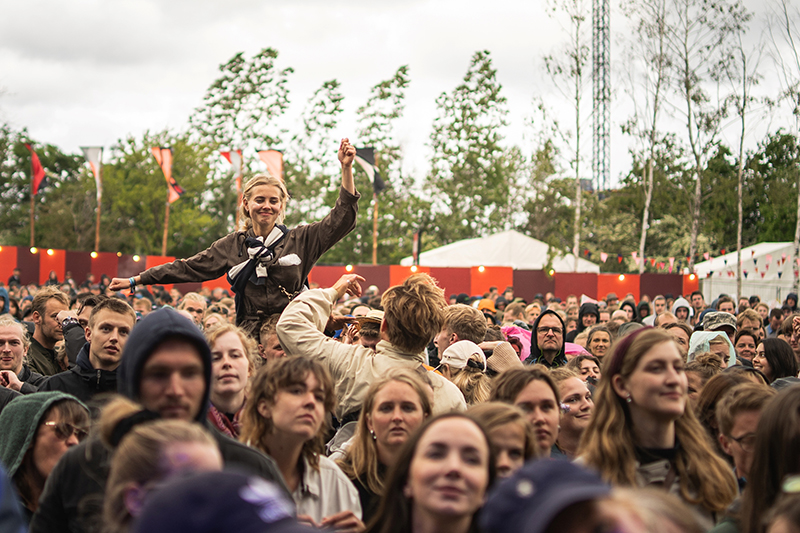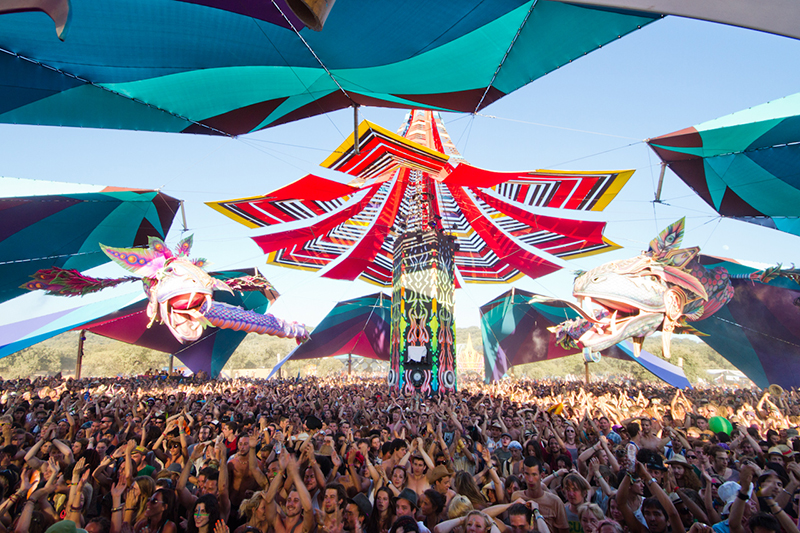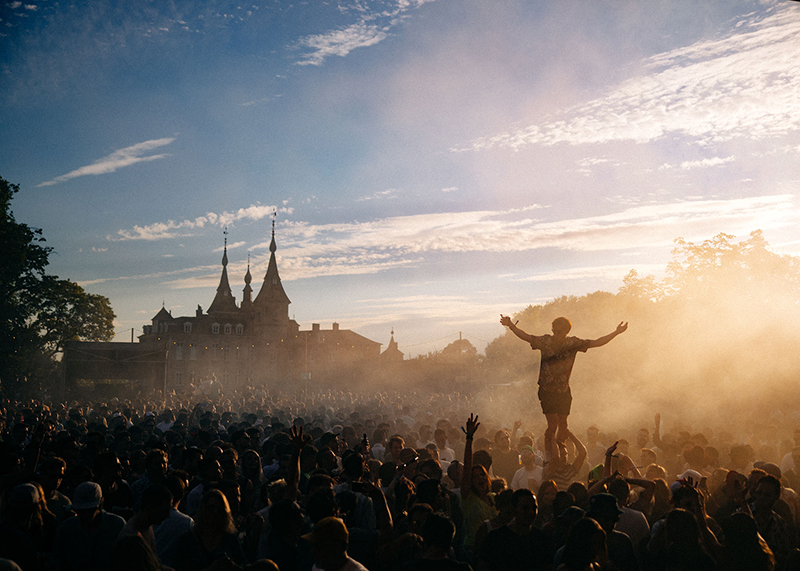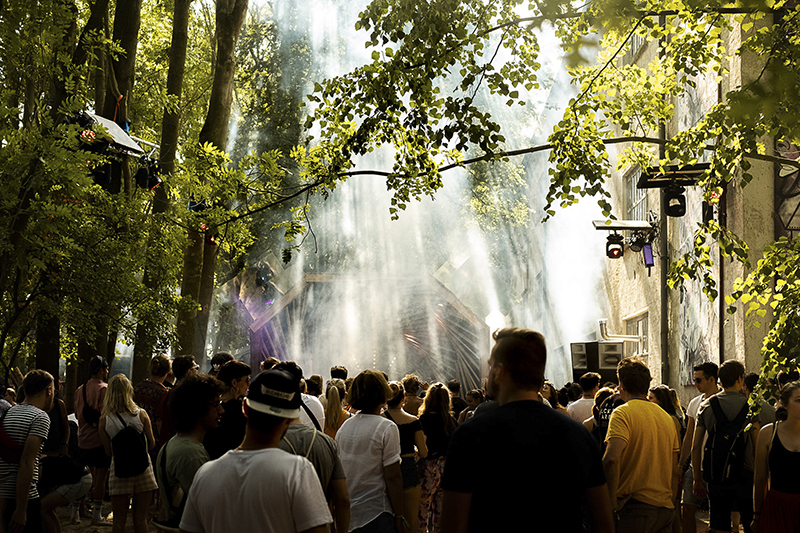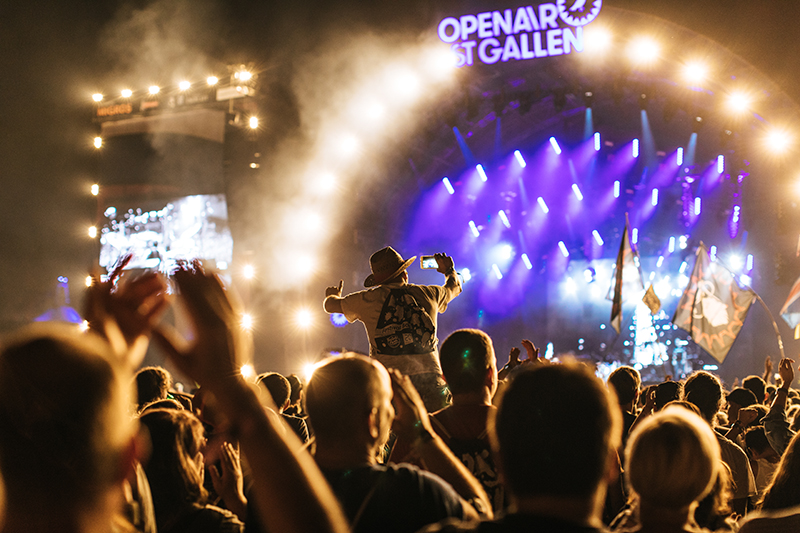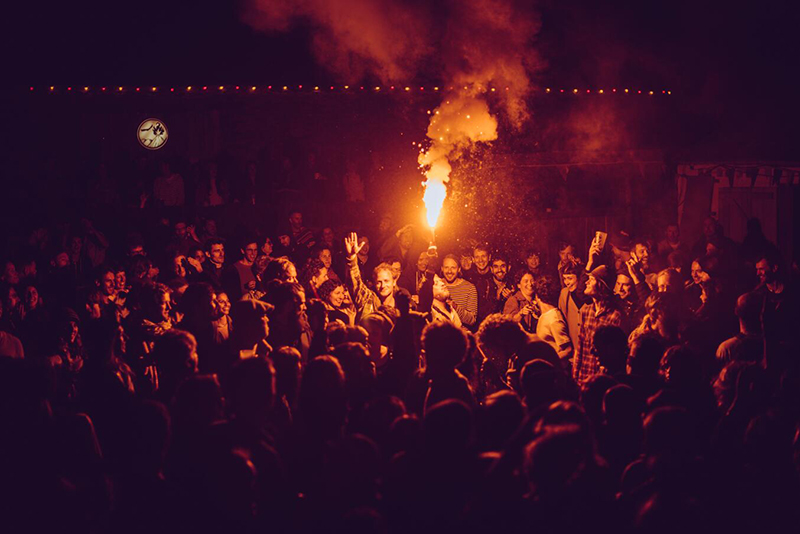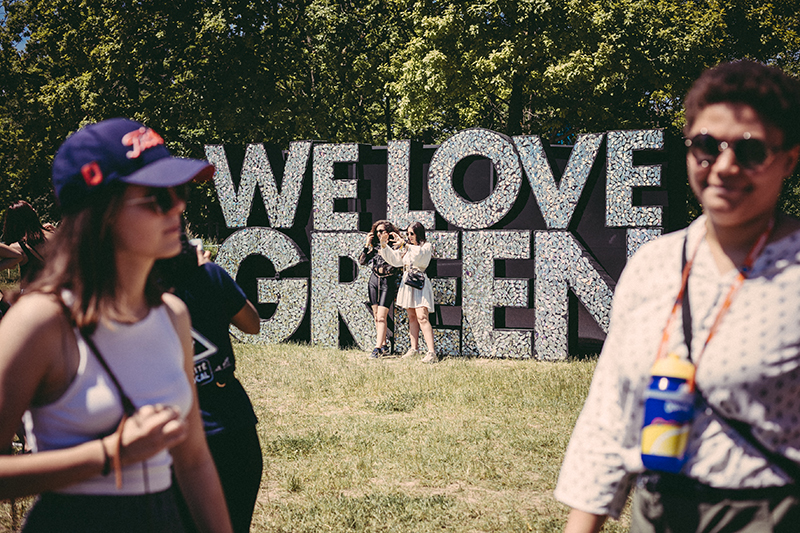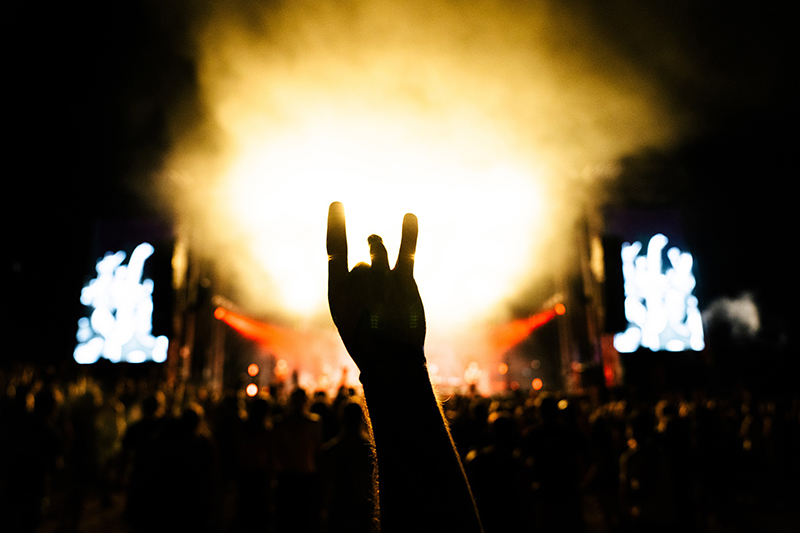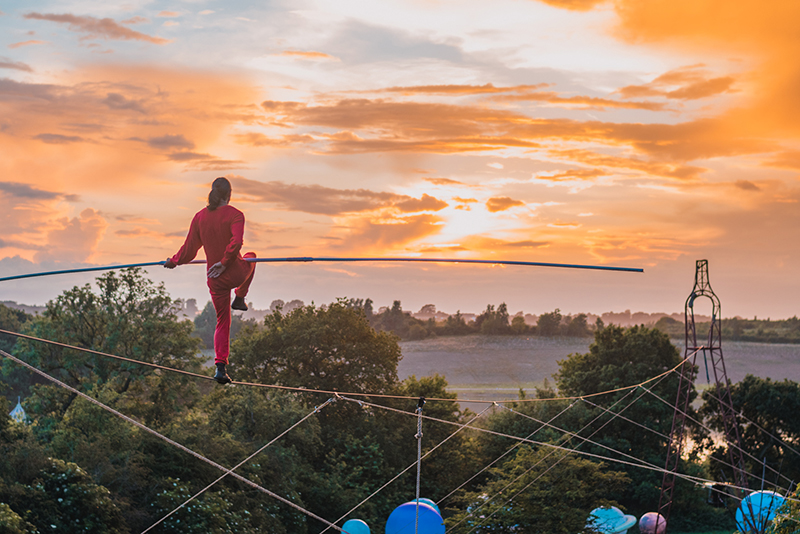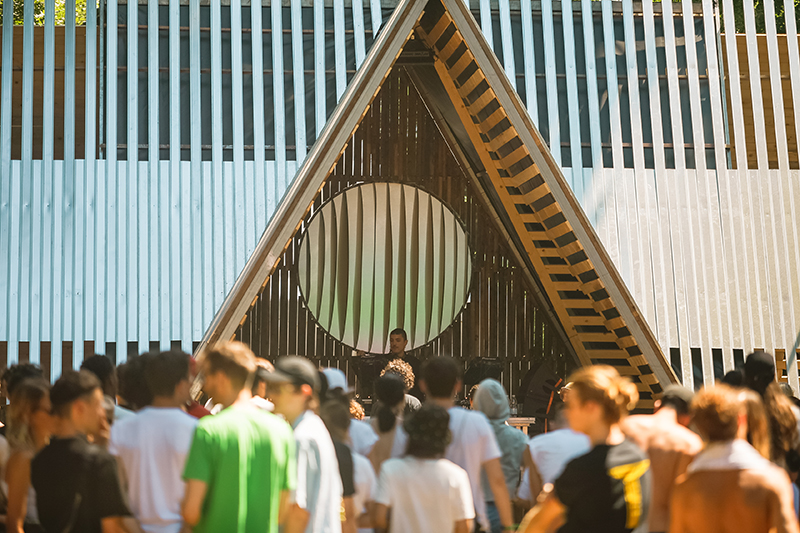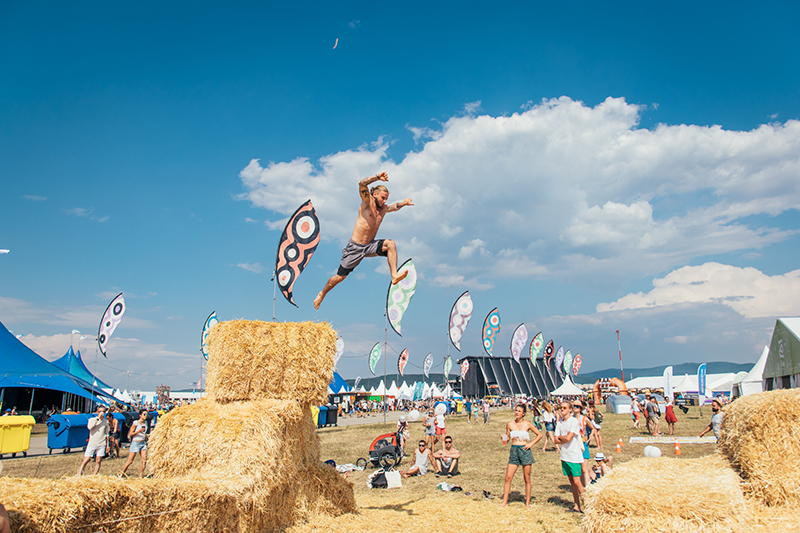What you can expect from this guide
Our task was to compile a digital publication that identifies, categorises and shares outstanding and transferrable great practices carried out by festivals and outdoor events from all across Europe to reduce environmental impacts and operate a more sustainable business model. The additional goal the Future Festival Tools team set was to create a format that not only lists measures, but also tells of challenges and solutions in an attractive and accessible way. Something that lets the festivals themselves have their say and that reflects the wide range of the European festival scene.
We far exceeded the planned number and researched over 20 examples covering all key focus areas of our project. From small grassroots events to large major festivals. Events of different styles and from all corners of the continent. The result is something special that goes beyond a best practice compendium. We call it “Green Festival Stories – A collection of inspiring examples from across Europe”.
The selection was made based on a set of different criteria by the experts from leading organizations in the field of sustainability and festivals united in the project. Suggestions came from the partners, as well as from associated experts and initiatives. The network of YOUROPE – The European Festival Association, whose members have already chosen sustainability as one of the priorities for their actions at the beginning of the millennium, was very helpful.
Please wait while flipbook is loading. For more related info, FAQs and issues please refer to DearFlip WordPress Flipbook Plugin Help documentation.
The 6 Key Focus Areas
To give this guide structure, we have chosen to divide it into six focus areas. Five are based on the aspects that cause the most emissions and other harmful environmental impacts at festivals: travel and transport, energy, materials & waste, food & drink, and water. It becomes more and more important to have an overall sustainability strategy that includes all these areas, as transformation is a process that needs to be continually cared for, leading to our sixth and final focus area: strategy.
Click on the images below to get to the case studies of the respective focus area!
FOOD & DRINK
Your Content Goes Here
Learn More
WATER
Your Content Goes Here
Learn more
ENERGY
Your Content Goes Here
Learn more
MATERIALS & WASTE
Your Content Goes Here
Learn more
TRAVEL
Your Content Goes Here
Learn more
STRATEGY
Your Content Goes Here
Learn more
Energy
Most outdoor temporary events currently use diesel generators as their main source of energy. However, our dependence on burning fossil fuels to provide electricity is a key cause of climate change due to the emissions of greenhouse gases they cause. Find out how these festivals learned to produce energy without fossil fuels by clicking on the button for each case study.
Materials and Waste
The circular economy aims to eliminate waste, keep products in use, and regenerate nature by cycling materials. Nature never creates waste; everything is used again and again. What if we could do the same? Our case studies show how festivals can handle resources brought in by suppliers, caterers, partners and audiences in a circular way.
Food and Drink
The way we are producing and consuming food is causing irreversible damage to the earth’s ecosystems. Modern agriculture is a significant cause of deforestation, air and water pollution, soil degradation, threats to wildlife, plants, biodiversity, and climate change. According to festival food salvage charity Eighth Plate, every year in the UK alone, 400 tonnes of food is wasted at festivals. Check out how festivals can minimise the environmental impact of the food they offer in our case studies.
Water
Water is essential for life and hence is an important aspect of any event to get right. Due to climate change, there are more disruptive weather patterns, leading to extreme weather events, unpredictable water availability, exacerbating water scarcity and contaminating water supplies. Find out how festivals can reduce water usage and treat grey water.
Travel & Transport
Almost all of our transport comes from burning fossil fuels, a process that is a major contributor to global warming. Travel is the most significant source of emissions for many festivals, including audience, crew, and artist travel as well as transport. Check out our case studies to find out how travel emissions can be reduced.
Strategy
Any organisation seeking to reduce their environmental impacts over the long term needs a strategy in place to achieve the changes that will make a difference. Check out our festivals to see how different sustainability strategies can be – and what they have in common.

